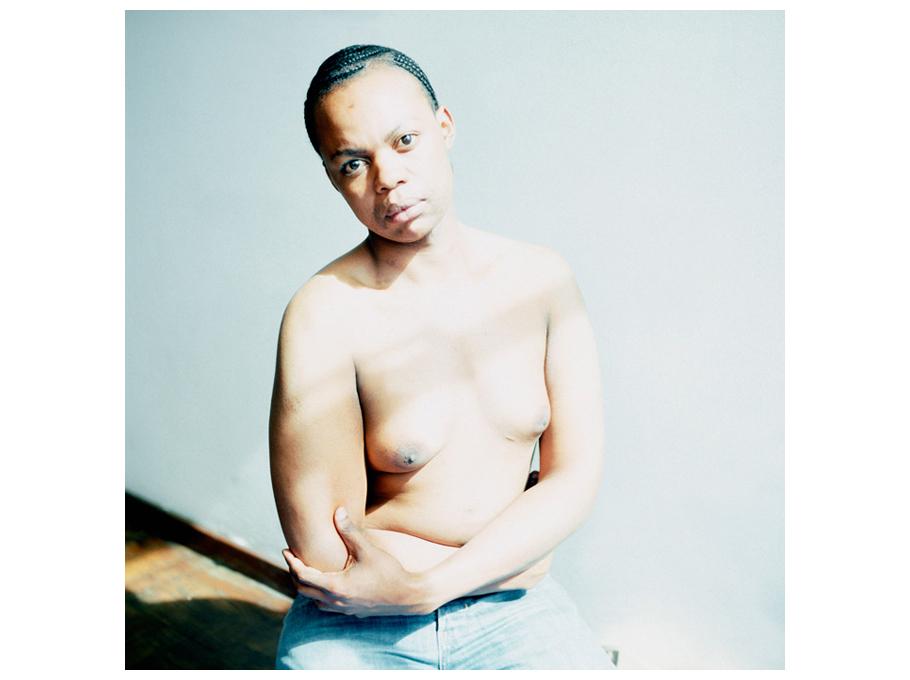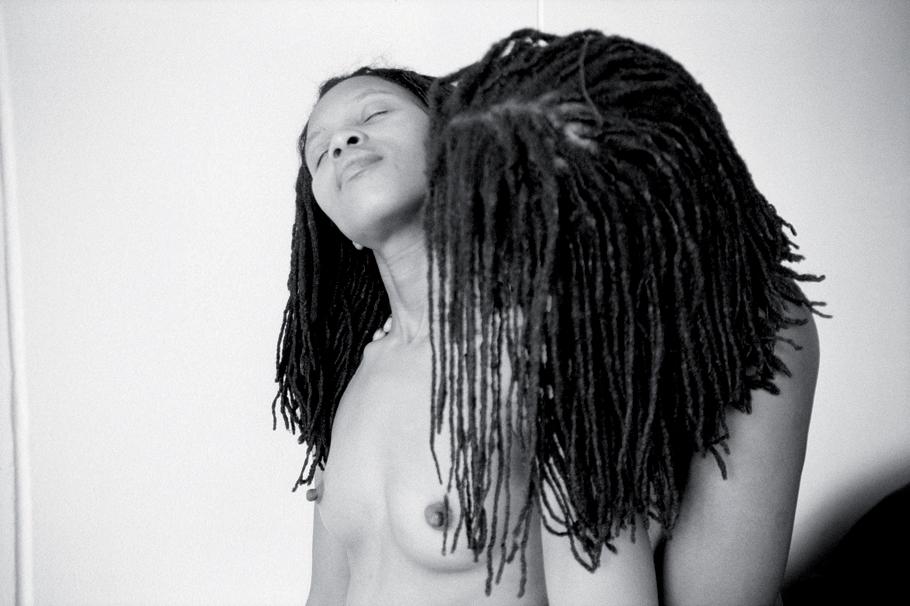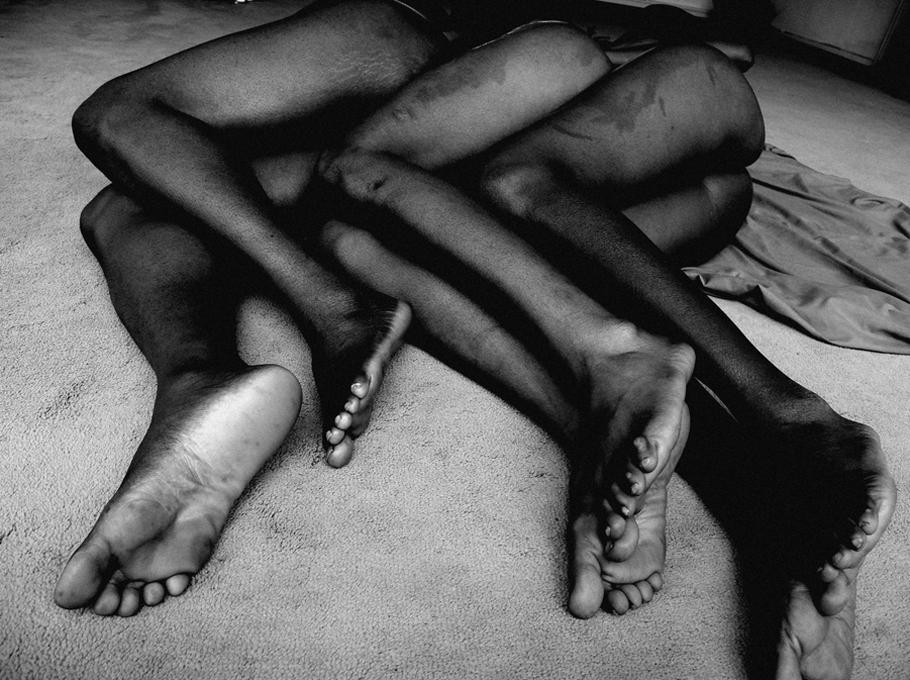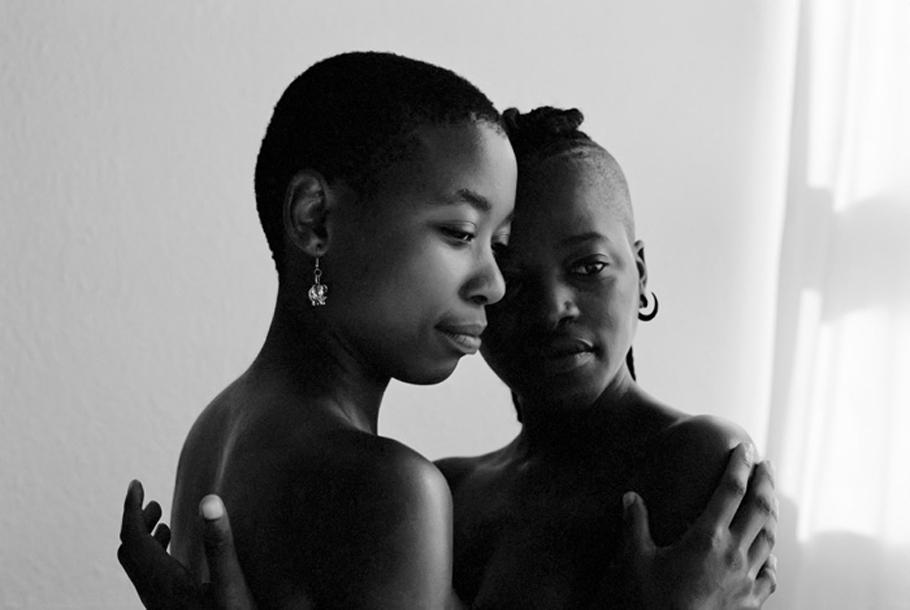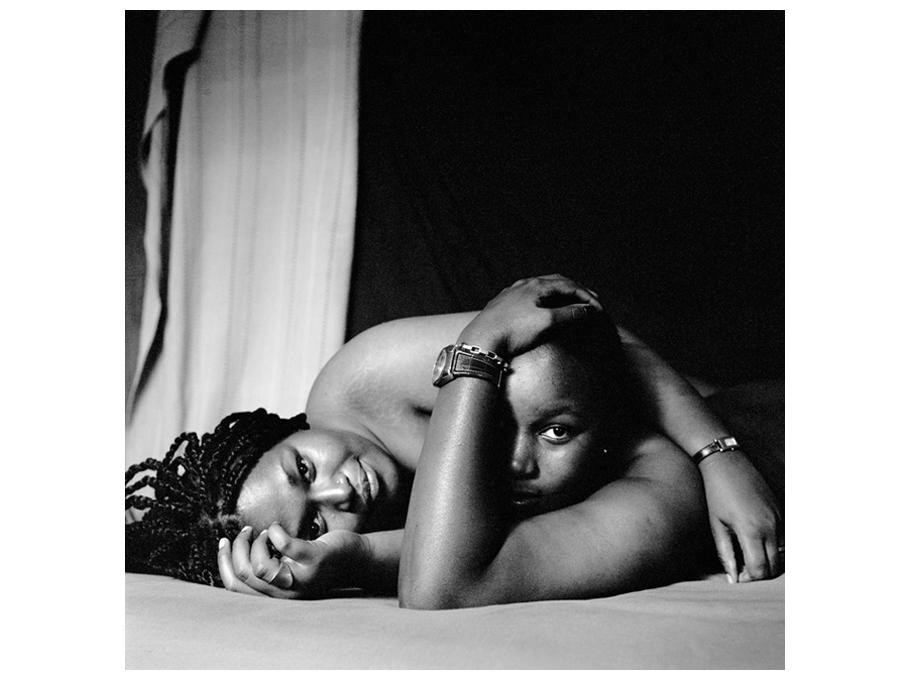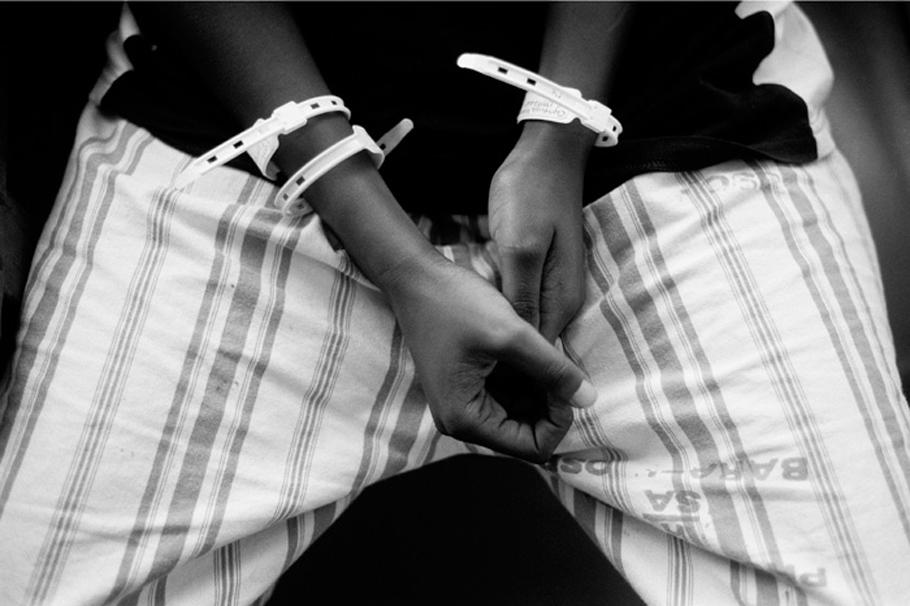Fragments of a new history
The work of Muholi is, to quote Muholi herself, a “visual activisim”. Her fight and permanent political commitment has been towards giving visibility to the black community of Lesbians, Gays, Bisexuals, Transexuals, and Intersexuals, something that they do not possess at present. Muholi not only belongs to this community but fights for it and looks at it from the perspective of a framework that gives coherence to her identity and to which she feels emotionally linked. She therefore manages to break down some of the stereotypes through her images, to do away with the fixed clichés that persist not only in the West but also in her country, the young democracy of South Africa, and throughout the African continent as a whole. Muholi’s images offer us upfront personal portraits of women, black, lesbian, South African or other; women of all social backgrounds, showing us that this community does not possess one but a multiplicity of identities. She allows us to view a whole series of individuals close up, human beings who come from different political, economic and social strata within their respective countries, and who are, who live, but who are excluded from the official history of their countries, as Muholi decries. This is one of the major battles of this photographer: to defy the existing hegemony by rewriting a visual history as yet dominated by the heterosexual ethnocentric patriarchal vision, and which is perpetuated through the gaze and mindset of the male heterosexual, a world in which black lesbians are still labelled as “others”. Muholi taks photography as an act of militancy and alerting the world of the triple exclusion experienced by South African black lesbians who at the same time must fight against racism, sexism and patriarchal society. Muholi actively condemns but, more importantly, and that is where her photographs are particularly powerful, she does not attempt to portray the women as victims but rather as active individuals, allowding an eventual reconstruction of a new visual picture of contemporary Africa and South Africa. However, her documentary work of piecing together the history of these women, in pictures, reinterpreting their and her own experiences is not a mere register of their everyday struggle to fight bravely against all odds, to overcome the humiliations, losses and hurt experienced, the inner and outer scars left by life’s tribulations, but is rather about the love that inhabits each and every woman portrayed. Muholi’s work brims over with sensitivity, intimacy, raw sentiment and is fundamentally indicial. She unveils their lives, her life, sharing their moments of happiness, of complicity, honouring the relationships they live, piecing together and multiplying the fragments of a history that is written day by day.
exhibition text “Fragments of a new history,” Zanele Muholi, curated by Sandra Maunac and Monica Santos, Casa Africa, Las Palmas de Grand Canaria, 2011/12.
